
Come visit us at our booth in the Exhibit Hall (Booth #18104) at the 2019 ASCO Annual Meeting.

Your AI-Trained Oncology Knowledge Connection!


Come visit us at our booth in the Exhibit Hall (Booth #18104) at the 2019 ASCO Annual Meeting.

Researchers looked at whether eating a low-fat diet helped improve survival in breast cancer, in a study presented ahead of the ASCO Annual Meeting.

Approximately 25% of patients with tumor samples submitted to the Pediatric MATCH program have been matched to an investigational therapy at an interim analysis reported ahead of the ASCO Annual Meeting.
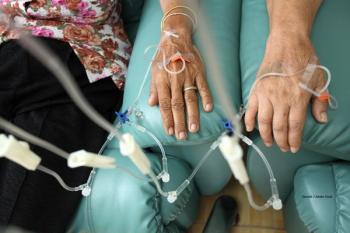
Researchers assessed outcomes with different chemo regimen doses in elderly or frail patients with gastroesophageal cancer, in this study presented ahead of the ASCO Annual Meeting.
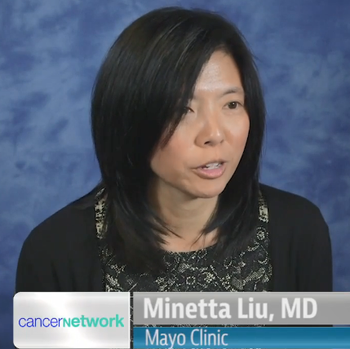
In this video, Dr. Minetta Liu outlines current research into profiling breast cancer cell-free DNA in the blood, potentially to identify clinically aggressive breast cancer subtypes.
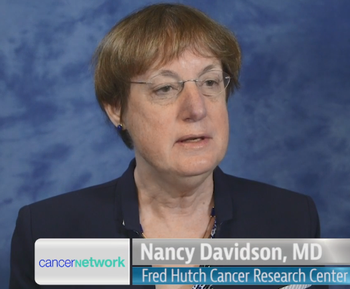
In this video, Dr. Nancy Davidson highlights current and next-generation diagnostics and therapies in breast cancer, as well as the need for “team science” in clinical trials.

In this video, Dr. Arti Hurria discusses resources addressing the disconnect between cancer as a growing problem in the elderly and the fact that clinical trials mostly enroll younger patients.
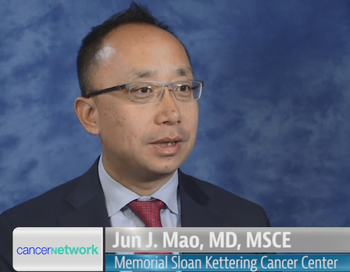
In this video, Dr. Jun Mao describes practical changes that have boosted sleep quality in cancer patients, and highlights results of a study showing sleep benefits from both CBT and acupuncture.
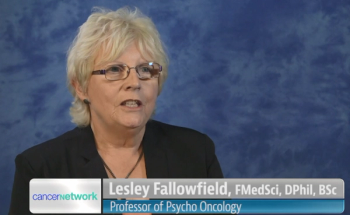
In this video, Professor Dame Lesley Fallowfield explains why oncologists need to be aware of their own tolerance of uncertainty before discussing possible treatment risks and outcomes with patients.

A phase II study found that the FGFR inhibitor erdafitinib yields a good response rate and was well tolerated in patients with urothelial carcinoma and FGFR alterations.

In PREOPANC, the 2-year survival rate was significantly higher for patients who received neoadjuvant chemoradiotherapy vs standard care.

New data suggest adding bevacizumab to chemotherapy may prolong PFS in patients with recurrent ovarian cancer.

Polatuzumab vedotin administered with bendamustine and rituximab significantly improved PET-based CR rates, PFS, and OS in DLBCL but not FL.

Six months of maintenance chemotherapy improved OS in children with high-risk rhabdomyosarcoma.
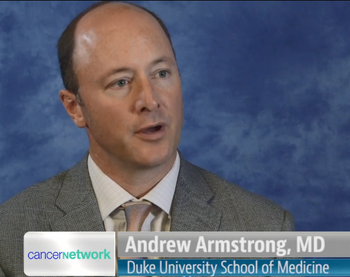
In this video, Dr. Andrew Armstrong explains why AR-V7–positive men rarely benefit from abiraterone or enzalutamide, and advises on AR-V7 testing as a clinical tool.

Compared with gemcitabine, mFOLFIRINOX improved outcomes for all endpoints when used in the adjuvant setting.
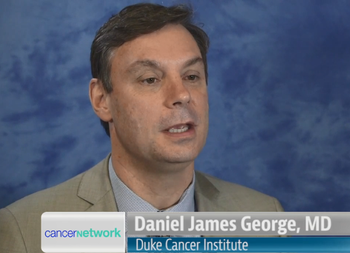
In this video, Dr. Daniel George discusses CARMENA, which asked if cytoreductive surgery is necessary in the age of active systemic therapy for mRCC.

“Now that effective adjuvant therapy has arrived in melanoma, accurate staging and patient selection to optimize a risk/benefit ratio is crucial,” emphasizes lead author Max Madu.
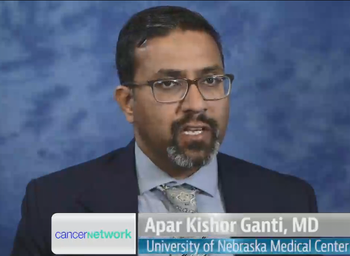
In this video, Apar Ganti, MD, highlights recent advances and studies presented at ASCO 2018 on management of NSCLC and SCLC with ICIs and targeted agents.

After 4 years of follow-up, pembrolizumab demonstrated durable antitumor activity and improved outcomes over ipilimumab in advanced melanoma.

Patients who responded to anti–PD-1 therapy and experienced prolonged progression-free survival had a much greater diversity of gut bacteria.

The noninferiority of neoadjuvant chemotherapy vs upfront surgery could not be confirmed with regard to overall survival in patients with ovarian, tubal, and peritoneal cancers.

The combination of the PARP inhibitor olaparib with the mTORC1/2 inhibitor vistusertib had promising activity across endometrial, ovarian, and triple-negative breast cancers.
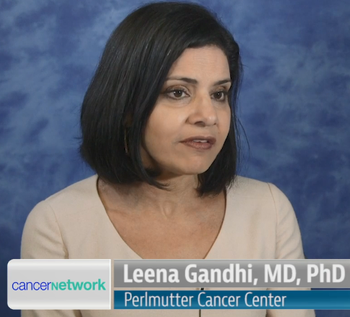
In this video, Dr. Leena Gandhi discusses KEYNOTE-042, a study of pembrolizumab vs chemotherapy in NSCLC (abstract LBA4), and other key ICI trials reported at ASCO 2018.
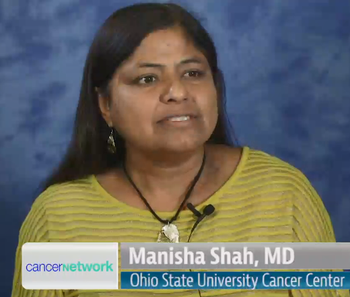
In this video, Dr. Manisha Shah highlights new and emerging targeted therapies for medullary thyroid cancer, including research presented at ASCO 2018.

The genetically engineered oncolytic herpes simplex virus produced promising clinical responses in stage IIIB–IVM1a melanoma.

Corticosteroid medications are associated with poorer outcomes of therapy with immune checkpoint inhibitors for patients with lung cancer.

Extended follow-up from the CheckMate 238 trial confirmed the superior efficacy of nivolumab vs ipilimumab in patients with stage III and IV resected melanoma.

The addition of abemaciclib to fulvestrant significantly improved PFS and time to subsequent chemotherapy in pre- and perimenopausal HR-positive/HER2-negative breast cancer patients.

The combination of ribociclib and fulvestrant yielded an improvement in progression-free survival in postmenopausal women with advanced breast cancer, according to the MONALEESA-3 trial.